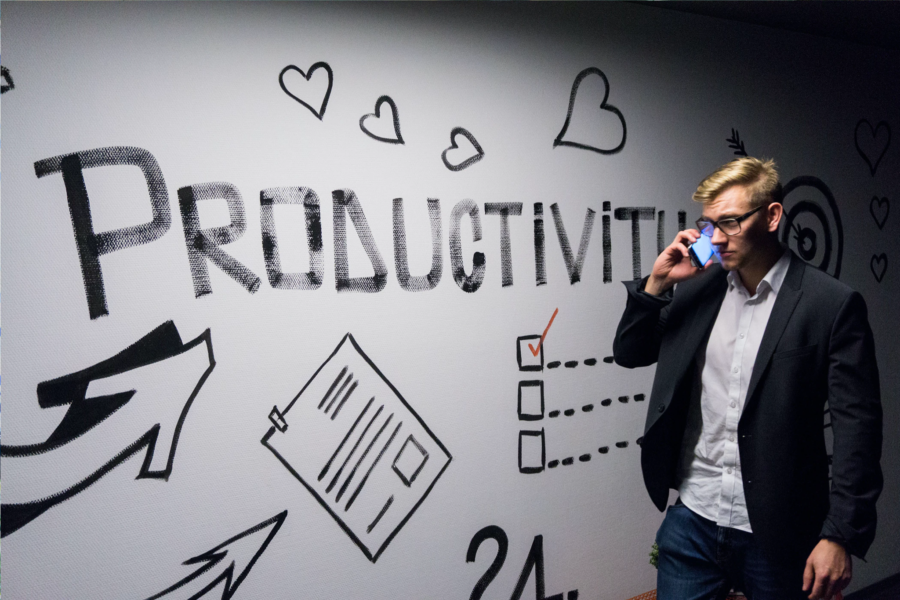Getting things done is the definition of being productive. However, it often sounds a lot easier than it actually is. You probably sit at your desk in the morning knowing you’ve got a lot to do. There’s a sense of excitement and ownership when you start with a productive mindset.
But at the end of the day, you glance towards your list of to do, and it doesn’t seem to have reduced at all. Where did your productivity go?
#1. You don’t know where to start
The first mistake that busy people make is to write down all the tasks and meetings for the day. Your to-do list doesn’t keep you focused. It can become overwhelming. Indeed, most people assume that being productive is all about ensuring they can keep busy. In reality, being busy is not the same as meeting your productivity goals. Think about it: When you pull out your to-do list for the day, do you always know which item(s) to complete in priority? Everything can seem equally important. It might sound counterproductive, but your to-do list is precisely what keeps you from being as productive as you need. Unfortunately, you can’t skip it. But the longer the list gets, the more confused you become. So, perhaps you can introduce short work periods rather than task-based management. For instance, divide your day into 15 minutes periods. Start any item from the list, and use these short productive periods to tick them off.
#2. You don’t manage your process
Complex processes that involve third parties and your customers can be time-demanding. Solo entrepreneurs may not be familiar with managing simultaneous administrative and financial customer data in cooperation with other suppliers. But, in sectors such as the healthcare industry, it’s an everyday occurrence. The healthcare institution needs to keep track of the patient care process, from the moment of registration to the moment the medical bill is paid. Yet, the process also involves medical insurance providers and other administrative information, which can cause delays and obstacles, affecting everyday productivity. With complex processes, productivity experts recommend introducing specialist solutions such as the RCM solutions for the healthcare industry. Indeed, you need a solution designed for your industry sector to make sense of administrative challenges while maintaining financial stability at every step of the process. When complex processes drain your business finances, your productivity suffers too.
#3. You don’t have a strategy
Strategy? You don’t have time for a strategy; you’re only running a solo business. You know what you have to do. You think so? Your strategy establishes your short and long-term objectives, ensuring you keep on track to achieve your goals. In other words, running a business is not just about getting work done but about getting the right work done to maintain your direction. Your strategy will also monitor resources because nobody wants to run out of money or time too early in the process. While it can be tempting to accept every gig as a solo entrepreneur, it can be a counterproductive approach. Your strategy will define the purpose of your business, and therefore which jobs are right for you. Don’t waste your time trying to do everything; you’ll end up achieving nothing at all.
#4. You don’t have enough time
Small businesses struggle with time management. They can’t afford to hire new talents, and therefore often attempt to keep their operations in-house. Should you do everything yourself? The answer is no. Of course, a DIY approach can feel appealing at first as it’s cheaper. However, it means you’re wasting time on tasks you are not trained to handle. As a result, you could be making mistakes or causing delays. More importantly, you can’t spend time on your area of expertise. So, at the end of the day, you’ve tackled a variety of items off the list, but you still haven’t done anything. It’s time to consider outsourcing so you can focus on what matters while someone else can handle tedious tasks.
#5. You’re not motivated
You’re sitting at your desk, looking at your to-do list, but you can’t find the energy to get started. You try to handle tasks throughout the day, but your pace is slow, and your focus keeps changing. This, my friend, is called burnout syndrome. You are overworked, overstressed, and mentally exhausted. Taking a day off can help you recharge your batteries. Additionally, it’s worth asking yourself important questions. Have you lost interest in your project temporarily or permanently? Can you find your motivation back? Can you fix it, or more importantly, do you want to fix it? Emotional and mental fatigue can also be a sign that you’re not on the right path.
Productivity is the art of making the most of the time and resources available to achieve your goal. But, more often than not, business people unconsciously put obstacles in their ways. Understanding these productivity blockages can help you overcome the issue and meet your objectives.
Share this Post

